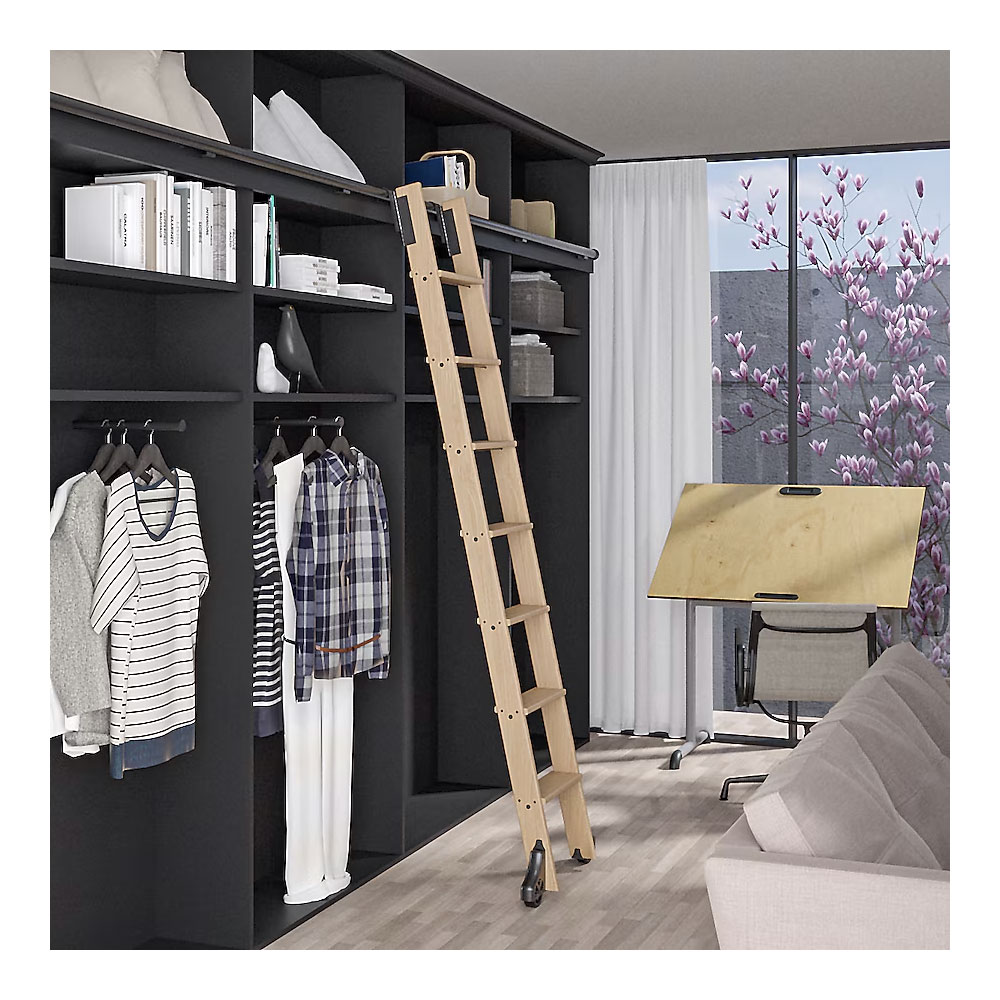6 Closet Shelving Ideas That Aren't Just Practical, They'll Also Lend a High-End Feel to Your Storage
The design and organization experts we spoke to had a wealth of inspiration to share on how to get closet shelving right

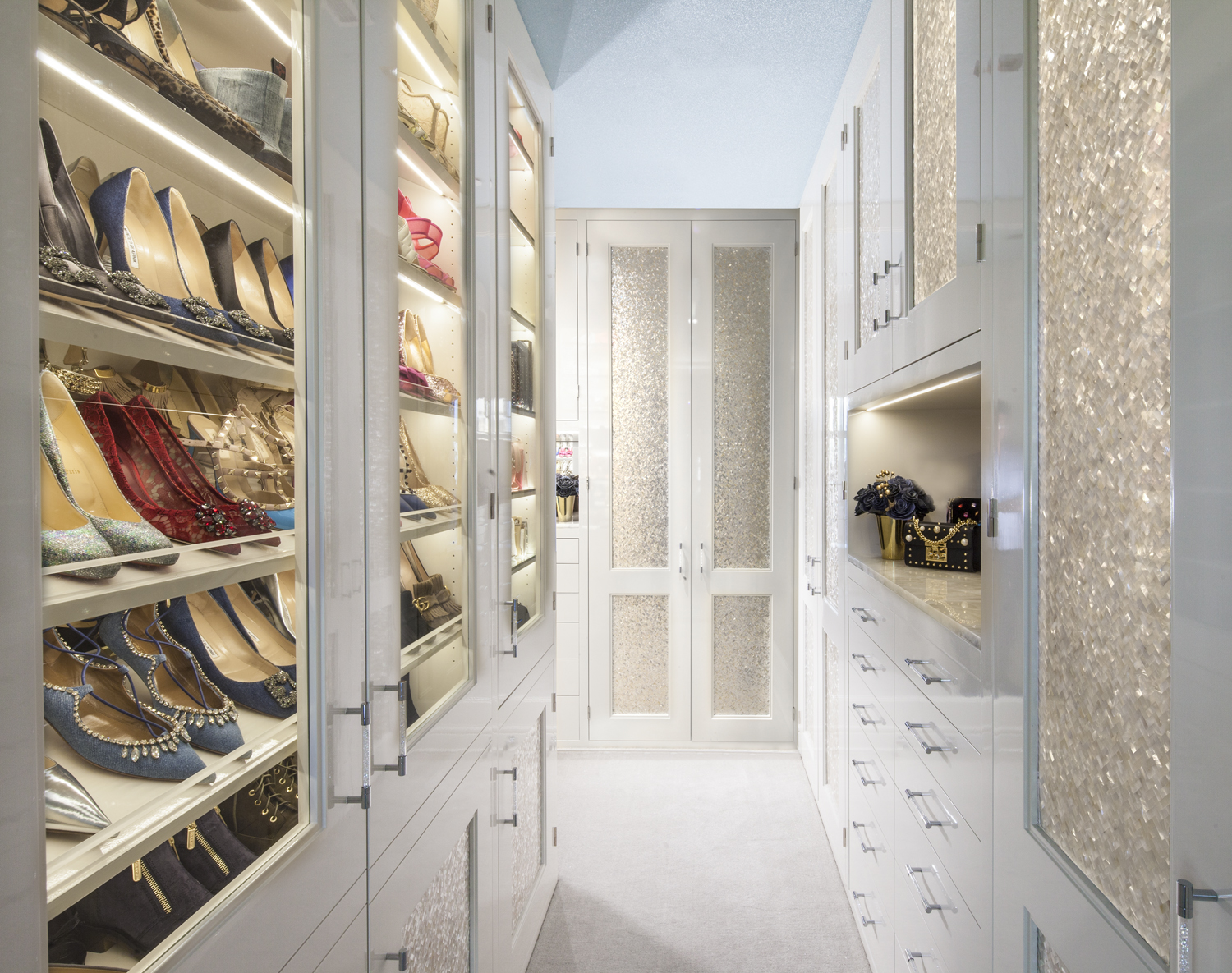
The Livingetc newsletters are your inside source for what’s shaping interiors now - and what’s next. Discover trend forecasts, smart style ideas, and curated shopping inspiration that brings design to life. Subscribe today and stay ahead of the curve.
You are now subscribed
Your newsletter sign-up was successful
Regardless of how much closet space you have, the shelving you choose to organize your belongings will define both the functionality and the look of this all-important space. The right shelving can not only enhance your dressing routine, allowing you to find everything easily and keep your clothes, shoes, and accessories in pristine condition, too.
"Luxury walk-in wardrobes are becoming the ultimate personal statement, blending style and function in a way that feels like your own private boutique," says Philipp Nagel, director of Neatsmith. "It's no longer just about storage – it's about creating a beautifully designed space where your clothing, shoes, and accessories are showcased like a curated collection.
"Shelving with bespoke features, premium materials, and tailored lighting, means that every detail is designed to enhance both the aesthetics and practicality of the space, making it a true luxury experience every time you step inside your walk-in wardrobe."
Whatever walk-in closet ideas you are dreaming of, our carefully chosen selection of shelving ideas is here to provide you with plenty of inspiration.
Tailoring your closet shelving ideas
When designing any kind of closet – big or small – it is vital that you begin by listing everything you want to store in the space, as well as how you plan on using it. For example, if you have a monumental shoe collection, your home organization needs are going to be very different from someone whose priority is their prized collection of pashminas. Likewise, if you have your heart set on incorporating a vanity table into your walk-in closet, you may need to find some space-saving shelving solutions to free up an area for this.
"Taking inventory of your closet can be time-consuming but it is completely worth it in the end," confirms Casey Lee Collins, design director and owner of Nomad Statements. "Having a plan for the layout of your closet based on the amount of specific items you have will create an effortless flow and easy access to your most used items. This will also help with clutter control, allowing you to donate the items that have not been worn recently."
1. Mix and match shelf depth
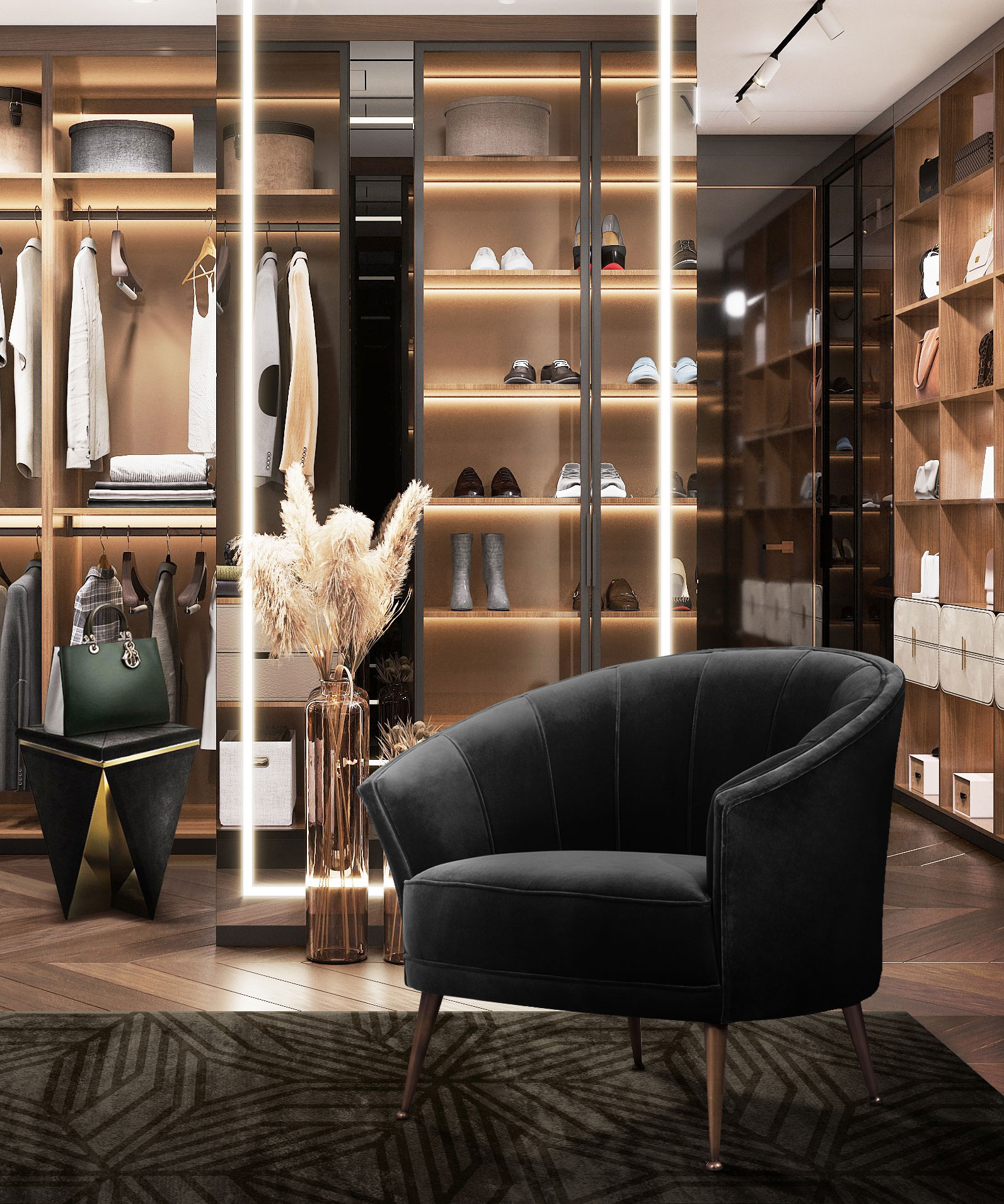
Rather than sticking to shelving with a uniform size, a far wiser approach is to select shelving of varying lengths and depths, based on what you plan on keeping on them.
The Livingetc newsletters are your inside source for what’s shaping interiors now - and what’s next. Discover trend forecasts, smart style ideas, and curated shopping inspiration that brings design to life. Subscribe today and stay ahead of the curve.
If, for example, your closet organization ideas include storage boxes and baskets, you'll want to ensure that your shelving has the capacity to hold them.
"Shelving that’s 12-14 inches deep works wonders for most clothing items without wasting space," advises founder & CEO of I Speak Organized Melanie Summers. "For those bulkier items like blankets, scarves, or sweaters, you might want to go up to 18 inches. Adjustable shelves are a real game-changer, letting you tweak things as your needs change."
"Shelves placed around 12 inches high will allow for use of most standard size bins and baskets," adds Kelly Livingston, owner of Professional Organizer MN.
2. Turn your shelving into a feature with concealed lighting
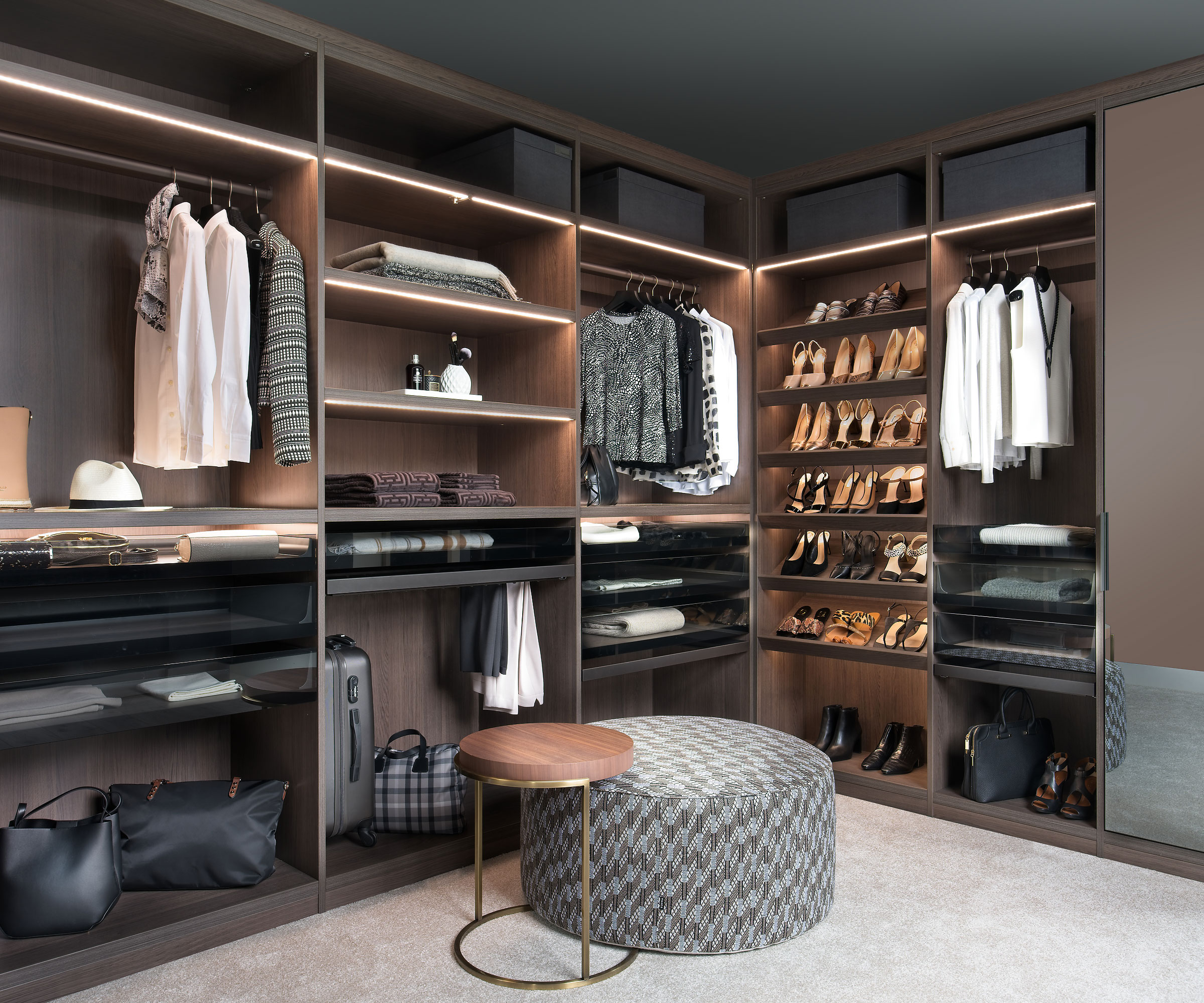
Finding ways to light up your closet shelving is not only essential to ensure you can find things quickly and easily, but this is also a way of taking your storage from functional to beautiful. Great lighting will instantly elevate the interiors of your closet.
"Backlit floating shelves for shoes and bags add a striking touch," advises Jodi Peterman, CEO of Elizabeth Erin Designs. "Soft LED lights behind the shelves can turn your wardrobe into a display that feels high-end and personalized."
If you are using a specialist closet designer they will probably talk through lighting options at the planning stage and integrate them into your space, but if you are taking more of a DIY approach, or upgrading existing closet shelving, there are some brilliant cost-effective lighting options available.
"There’s nothing worse than losing items in the depths of the shelves due to not being able to see clearly," says Casey Lee Collins. "Whether you are having a custom closet built and including track lights, or you DIY battery-powered lights onto your existing shelves, it can be achievable and will have the biggest impact on your wardrobe. It also adds an elevated sophistication to even the smallest space."
If you fancy a little DIY closet organization, consider self-adhesive lights that can be stuck to the underside of shelving and are set off by motion. Alternatively, LED strip lighting is affordable, widely available, and can be cut to size. It is also often possible to change the brightness and colors of these strips and to operate them via remote control. DAYBETTER LED Strip Lights from Amazon are a great option.
3. Maximize your vertical space
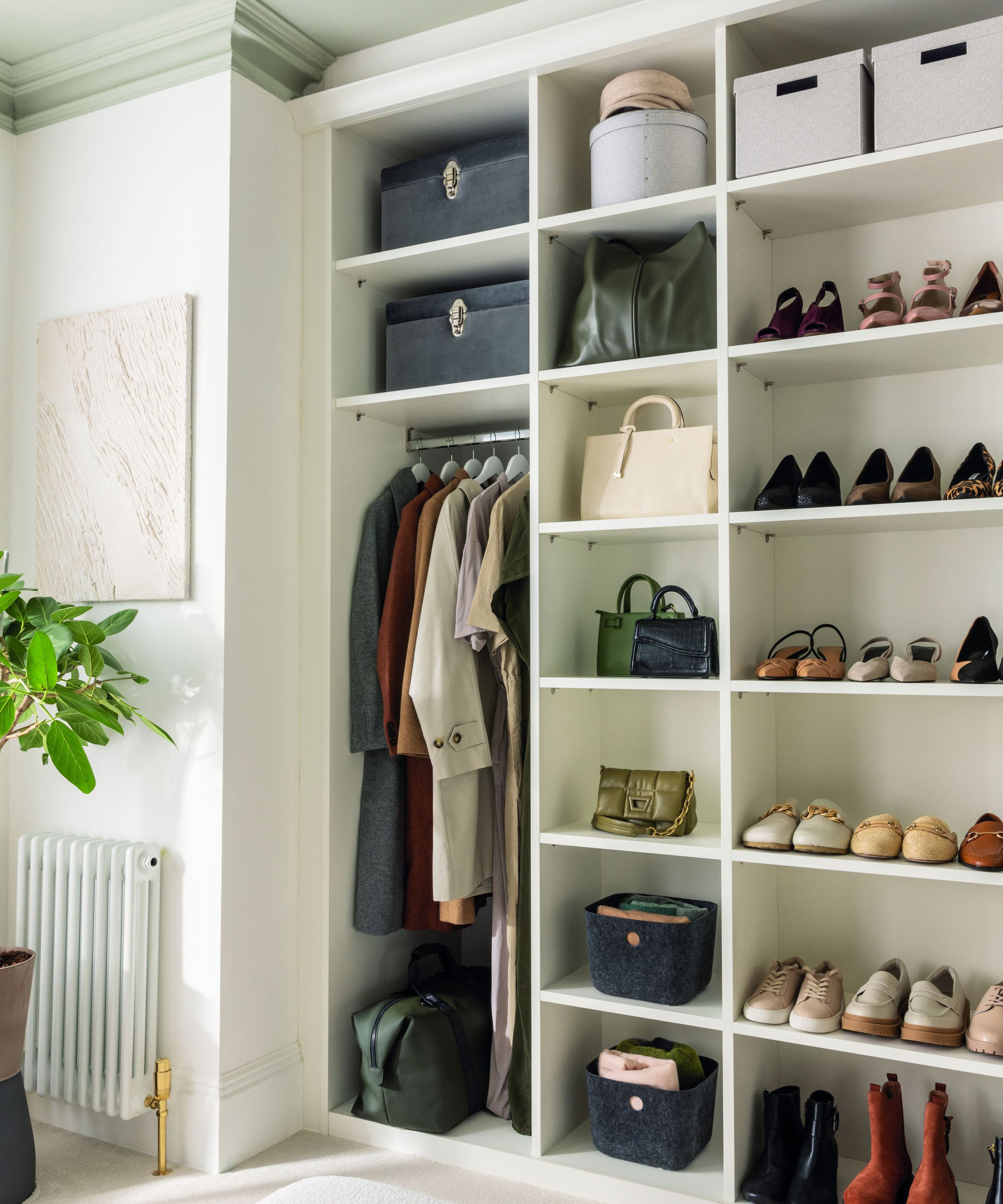
If you are wondering how to make the most of a small closet then you need to think in terms of your vertical space and how you can use it to your advantage.
"Think vertically!" agrees Melanie Summers. "Floor-to-ceiling shelving can really maximize your space, with higher shelves for those less-used items."
Again, great lighting will ensure you can see what you have on some of your higher-level shelves. In addition, do consider a walk-in closet ladder as part of your overall design. If you are working with a designer and starting from scratch, it will often be possible to attach the ladder on rollers at the top to make sliding it back and forth easier.
4. Use dividers to zone your shelving
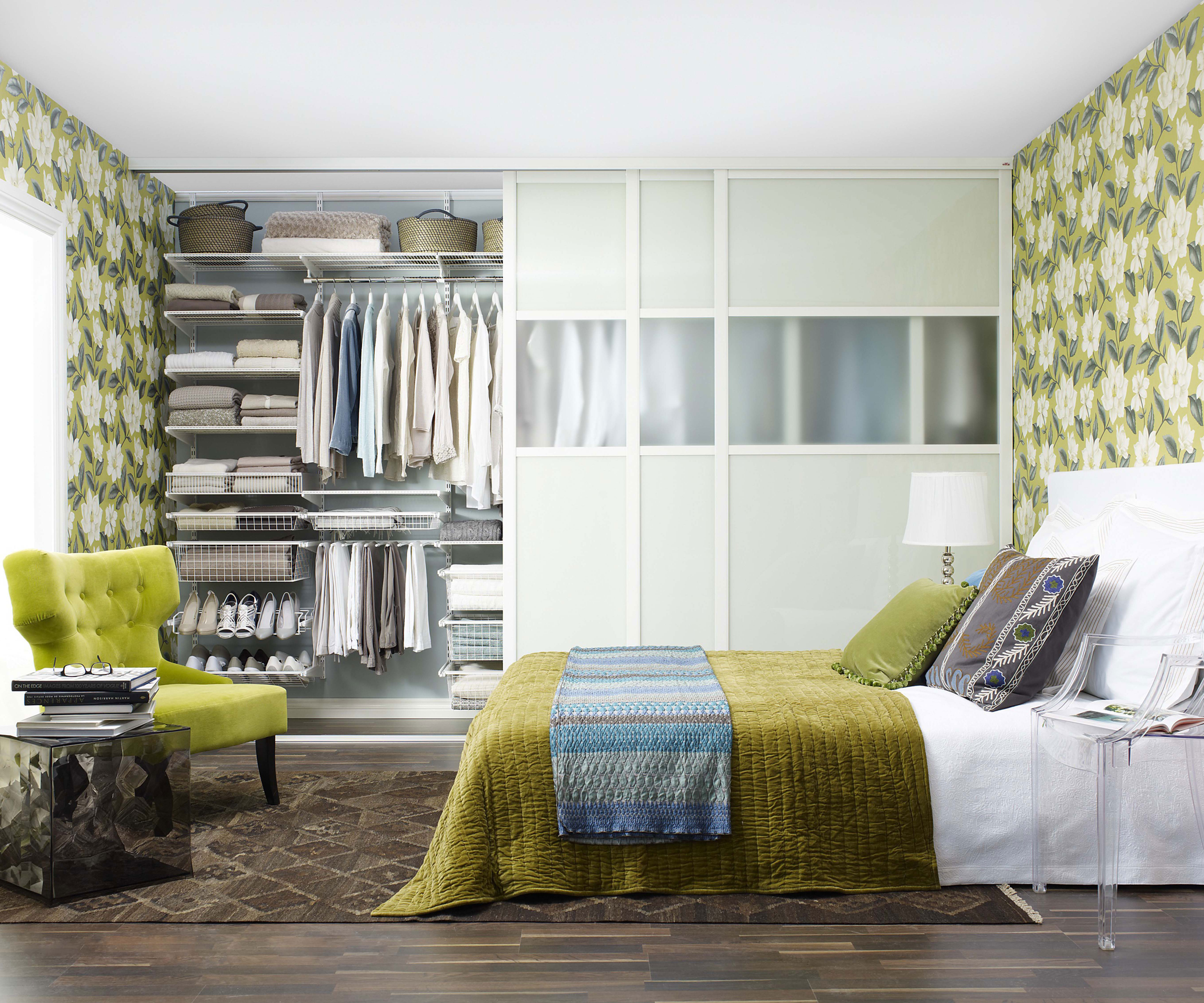
It is all very well including plenty of shelving into your closet design but if you want it to remain ordered and organized – as opposed to cluttered – you need some kind of way of keeping clothing categories separate – and this is where shelf dividers can be invaluable.
"Shelf dividers are your best friends for keeping clothes stacks neat," agrees Melanie Summers. "And for a bit of flair, sliding panels can reveal different sections, keeping everything tidy and easy to find."
Clear acrylic or glass dividers, like these from Amazon, are perfect for creating a seamless and airy finish, while metal wire versions are widely available too. For a smart, high-end finish, opt for dividers in a matching finish to that used for your shelving.
5. Combine your shelving with drawers
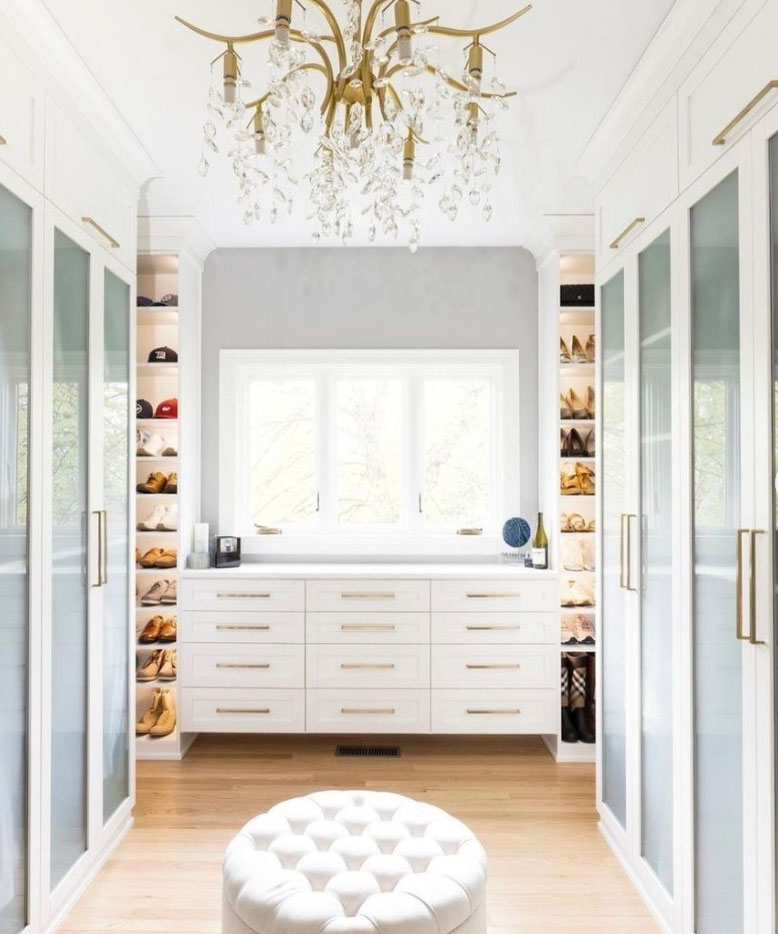
Very often a combination of drawers, rails and shelving works best in closets, providing a solution for all kinds of garments and accessories.
While shelving is one of the best ways of housing clothes that you use regularly, when it comes to how to store your summer clothes or items that won't be needed very often, a covered solution is best if you don't want them to gather dust.
"Drawers are great for keeping seasonal clothes and personal items tucked away," advises Melanie Summers. "If you’re short on drawer space, decorative bins can do the trick, or you might even squeeze a dresser inside if there's room. Open shelves are perfect for showing off shoes, handbags, or neatly folded clothes, making everything easy to grab and go."
And it seems Melanie isn't the only organizing expert singing the praises of drawers
"In the drawer versus shelf debate, I will always choose drawers. Drawers are typically easier to keep organized than shelving because they naturally contain items," points out Kelly Livingston. "If you can transform a shelf into multiple drawers you’ll automatically cut your clutter by giving every item a specific home. If not, I recommend utilizing bins or baskets on shelving to contain items. If you prefer a more visual approach to organizing, clear bins or shelf dividers are great options."
6. Use storage bins to organize shelves
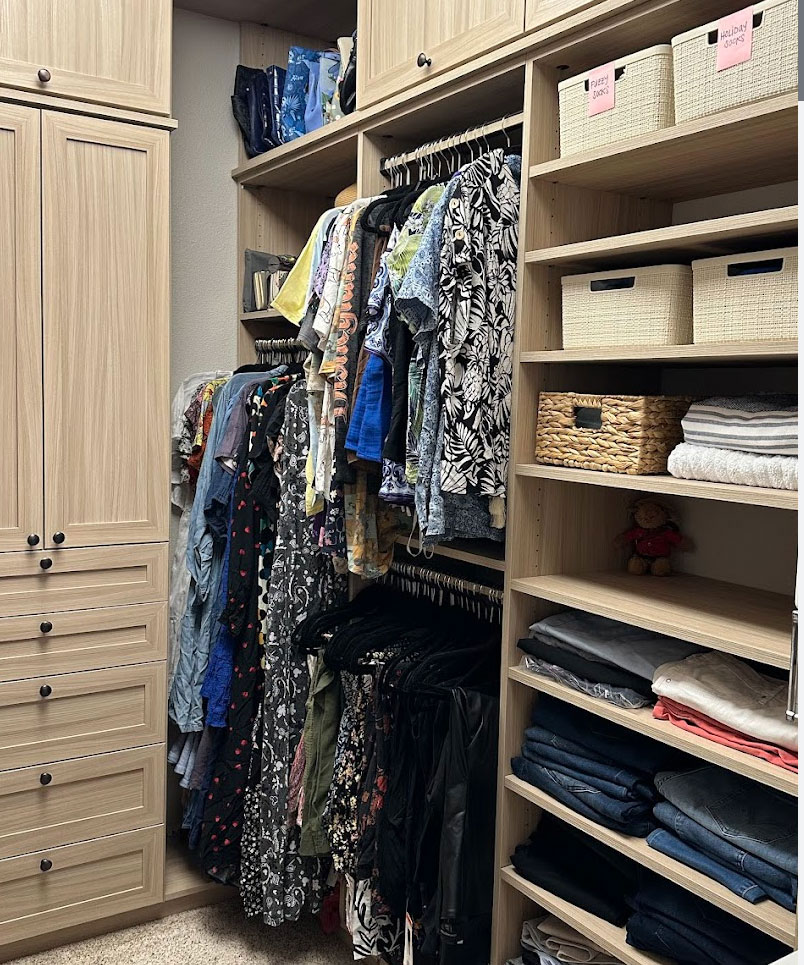
Like shelf dividers, storage baskets and bins provide some much needed categorization on open shelving and can be styled to suit the overall decor of the space too.
"A brilliant idea for any closet upgrade is a simple investment in organization bins for the shelves," suggests Casey Lee Collins. "This is an ideal solution for extra storage on the top shelves and allows easy access as needed.
"I prefer the bins with labels so you can find any item quickly," she continues. "Ordering bins that are the same dimensions as your shelf will help you utilize every inch of space for storage" ."
FAQs
What are the rules for closet shelves?
While the best approach to closet shelving is always going to take into account your own individual storage requirements, it is useful to bear in mind a few closet dimensions when selecting practical products.
"Standard shelves are typically 12 or 16 inches in depth," advises Kelly Livingston. "The best depth will depend on the overall size of your closet. 16 inches will make great use of space in walk-in closets, while 12 inches is great for all other closets."

Natasha Brinsmead is a freelance homes and interiors journalist with over 20 years experience in the field. As former Associate Editor of Homebuilding & Renovating magazine, Natasha has researched and written about everything from how to design a new kitchen from scratch to knocking down walls safely, from how to lay flooring to how to insulate an old house. She has carried out a number of renovation projects of her own on a DIY basis and is currently on the lookout for her next project.
